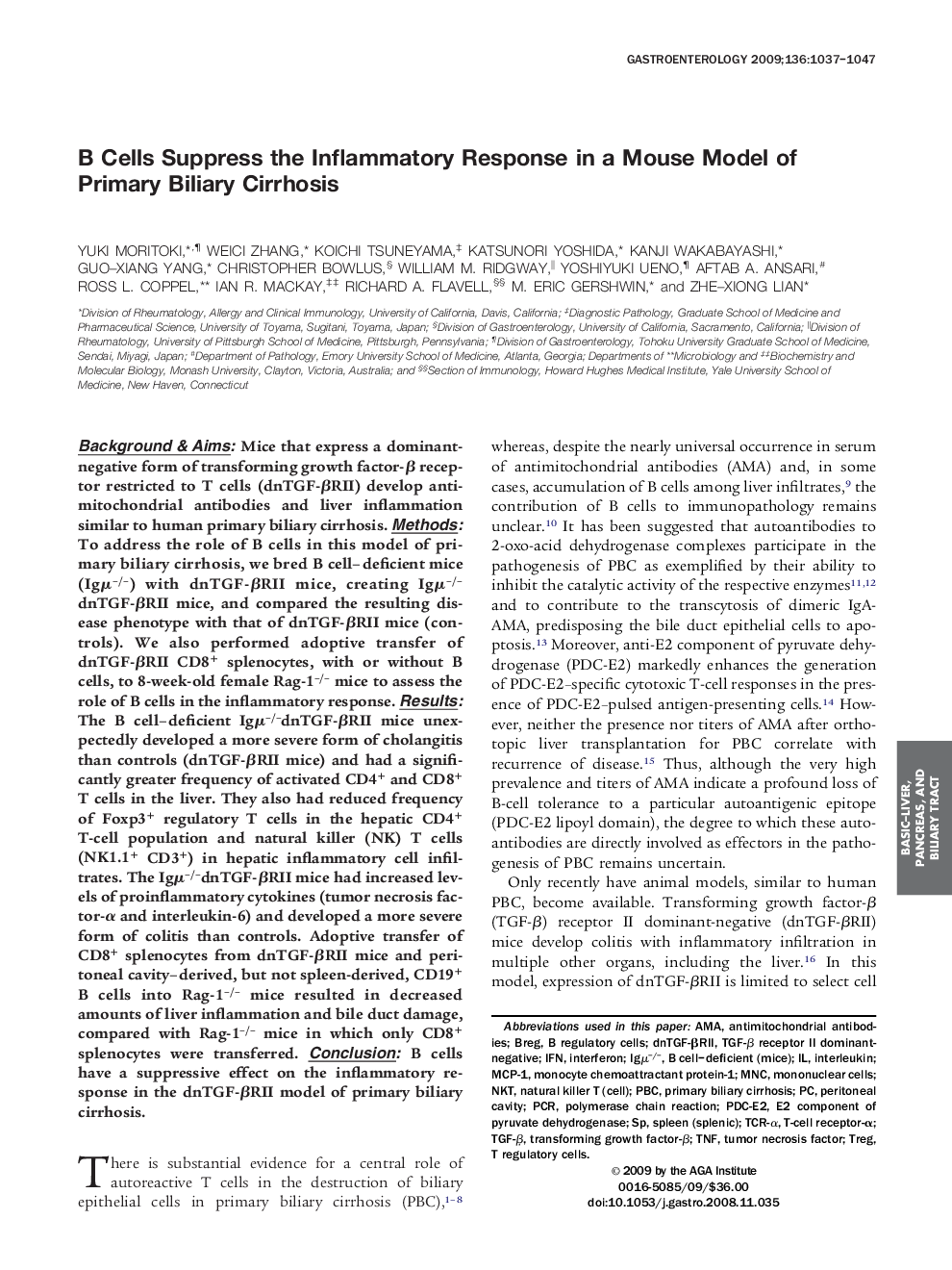| Article ID | Journal | Published Year | Pages | File Type |
|---|---|---|---|---|
| 3298740 | Gastroenterology | 2009 | 11 Pages |
Background & AimsMice that express a dominant-negative form of transforming growth factor-β receptor restricted to T cells (dnTGF-βRII) develop antimitochondrial antibodies and liver inflammation similar to human primary biliary cirrhosis.MethodsTo address the role of B cells in this model of primary biliary cirrhosis, we bred B cell–deficient mice (Igμ–/–) with dnTGF-βRII mice, creating Igμ–/–dnTGF-βRII mice, and compared the resulting disease phenotype with that of dnTGF-βRII mice (controls). We also performed adoptive transfer of dnTGF-βRII CD8+ splenocytes, with or without B cells, to 8-week-old female Rag-1–/– mice to assess the role of B cells in the inflammatory response.ResultsThe B cell–deficient Igμ–/–dnTGF-βRII mice unexpectedly developed a more severe form of cholangitis than controls (dnTGF-βRII mice) and had a significantly greater frequency of activated CD4+ and CD8+ T cells in the liver. They also had reduced frequency of Foxp3+ regulatory T cells in the hepatic CD4+ T-cell population and natural killer (NK) T cells (NK1.1+ CD3+) in hepatic inflammatory cell infiltrates. The Igμ–/–dnTGF-βRII mice had increased levels of proinflammatory cytokines (tumor necrosis factor-α and interleukin-6) and developed a more severe form of colitis than controls. Adoptive transfer of CD8+ splenocytes from dnTGF-βRII mice and peritoneal cavity–derived, but not spleen-derived, CD19+ B cells into Rag-1–/– mice resulted in decreased amounts of liver inflammation and bile duct damage, compared with Rag-1–/– mice in which only CD8+ splenocytes were transferred.ConclusionB cells have a suppressive effect on the inflammatory response in the dnTGF-βRII model of primary biliary cirrhosis.
